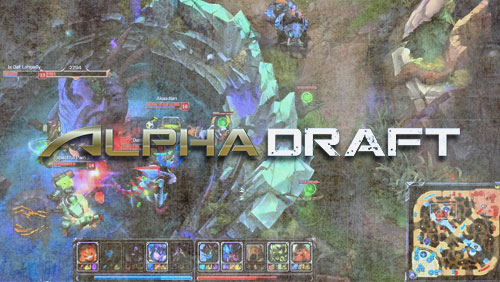Heads up fantasy eSports fans, AlphaDraft is ceasing its real-money fantasy eSports contests.
 The fantasy eSports platform will “stop offering fantasy eSports contests” starting October 21, coinciding with the conclusion of the League of Legends World Championship, according to eSports Betting Report.
The fantasy eSports platform will “stop offering fantasy eSports contests” starting October 21, coinciding with the conclusion of the League of Legends World Championship, according to eSports Betting Report.
In an email to its customers, a copy of which was obtained by the news outlet, AlphaDraft said the decision to halt the contests came as the team “continue[s] to evaluate the eSports landscape.”
Players can withdraw their funds any time, according to AlphaDraft.
AlphaDraft is actually one of the first two platforms to offer fantasy eSports services early this year, alongside Vulcun. Founded in 2014, the platform offers free and paid contests, where participants are allowed to draft a new team every day without season-long commitments, and also compete with other fans without having to create their own fantasy leagues.
AlphaDraft was acquired by daily fantasy sports operator FanDuel in September 2015. The acquisition was seen as FanDuel’s entry into the fantasy competitive gaming market. FanDuel, like DraftKings, is very much focused on professional sports, while AlphaDraft was targeted solely on professional video gaming.
However, fantasy eSports proved to be a challenging market, especially after the legal and legislative challenges that paralyzed the daily fantasy sports industry starting in October 2015—a month after FanDuel purchased AlphaDraft.
In July, Vulcun shut down its fantasy eSports site in favor of Twitch chat games. Considered to be the largest name in the fantasy eSports space, attracted $13.3 million in funding from players and investors looking to cash in on the burgeoning eSports fantasy market.
The company already stopped accepting real-money fantasy wagers on eSports events in January due to regulatory concerns in the United States. Vulcun had to cease operations in Nevada in October 2015 as a result of the state Gaming Control Board’s order that required real-money daily fantasy sports operators to have state gaming licenses.